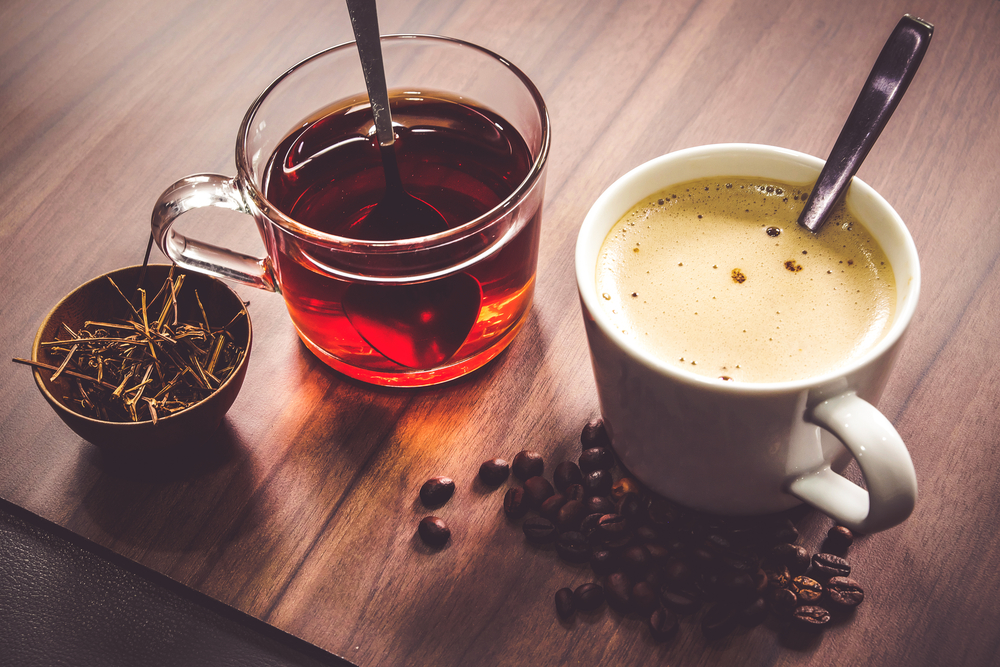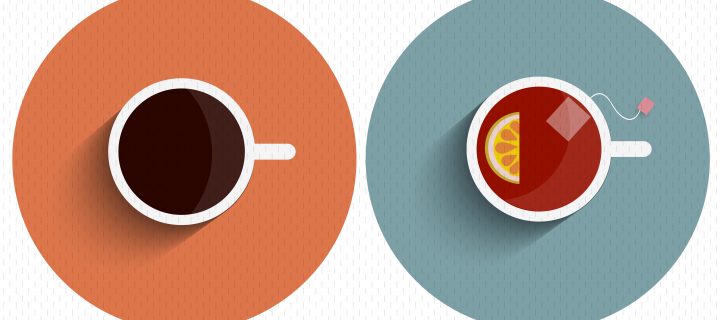Both coffee and tea are overflowing with benefits to your body in their own ways, but if you had to choose, is one better for you than the other?
The case for coffee
“Coffee has been linked to decreased risk of Parkinson’s disease and type 2 diabetes,” says Kimberly Gomer, MS, RD, LDN, director of nutrition at the Pritikin Longevity Center & Spa in Miami.
Coffee has also been linked to lower cancer risk rates, including endometrial cancer and nonmelanoma skin cancer. A study of more than 500,000 people across the world concluded that coffee drinking was associated with reduced risk of death from various causes, too. This remained true to people who drank up to eight cups a day!
That is unless you’re packing on the sugar and cream with your coffee, of course.

Down to a tea
“Tea and green tea, both caffeinated and decaffeinated, contain ingredients that have many health benefits including reduced risk of cancer, cardiovascular disease, osteoporosis, and gum disease,” Gomer says.
Said ingredients include a number of antioxidants and polyphenols, which are compounds that can help lower blood pressure and stroke risks, improve weight loss, and limit cognitive decline.
Research suggests regular tea consumption reduces inflammation; inflammation is connected to many medical conditions, from arthritis to heart disease.
Related: How to Make a Healthier, Tastier Coffee
Which is better?
Tea gets the leg up, for one reason only: the number of powerful antioxidants and polyphenols. Yes, coffee has them, too, but tea has them in higher concentrations.
“Coffee and tea both have their benefits, but all tea contains antibacterial, anti-inflammatory, and antiviral benefits due to its polyphenol and antioxidant content,” says Will Cole, IFMCP, DC, a functional-medicine expert and author of Ketotarian. “Additionally, different types of tea offer their own unique benefits.”
But if you’re sensitive to caffeine, you’ll need to avoid both. Coffee has more than tea (92 milligrams per cup), but tea still puts up numbers at 50 milligrams.
“The caffeine in either may pose an issue to those sensitive to it, such as tremors, increased anxiousness, or disruption in sleep,” says Beth Warren, MS, RDN, CDN, founder of Beth Warren Nutrition and author of Secrets of a Kosher Girl.
Photo Credit: YaiSirichai/Shutterstock.com; A-R-T/Shutterstock.com












